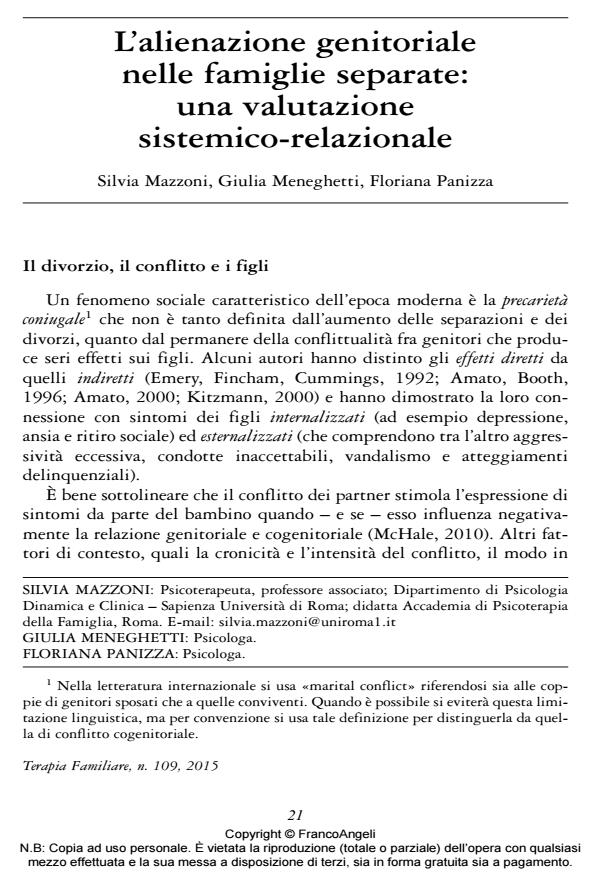L’alienazione genitoriale nelle famiglie separate: una valutazione sistemico-relazionale
Journal title TERAPIA FAMILIARE
Author/s Silvia Mazzoni, Giulia Meneghetti, Floriana Panizza
Publishing Year 2015 Issue 2015/109
Language Italian Pages 20 P. 21-40 File size 146 KB
DOI 10.3280/TF2015-109002
DOI is like a bar code for intellectual property: to have more infomation
click here
Below, you can see the article first page
If you want to buy this article in PDF format, you can do it, following the instructions to buy download credits

FrancoAngeli is member of Publishers International Linking Association, Inc (PILA), a not-for-profit association which run the CrossRef service enabling links to and from online scholarly content.
The theme of high conflictual separated and divorced couples and of severe effects on children will be focused in the article. Among these effects, the parental alienation phenomenon will be addressed from a critical discussion on Parental Alienation Syndrome (PAS) formulated by Richard Gardner. Despite the PAS is still discussed within the scientific community, it is already mentioned in 2008 in Art. 9 of the bill number 957: «The proven conditioning of the child’s will, especially if targeted to the rejection of the other parent by activating the parental alienation syndrome, constitutes a serious failure, which can result in exclusion from custody». Gardner’s hypothesis, will be compared to the one proposed in the "concentric model" of Kelly and Johnston. The results emerging from the study of six cases - found at law firms - will be presented helping to illustrate an evaluation grid that shows the different fac tors that contribute to the construction of parental alienation and that guides the clinician to define multifocal plans’ intervention.
Keywords: Parental alienation, high conflictual parents, systemic and family assessment.
Silvia Mazzoni, Giulia Meneghetti, Floriana Panizza, L’alienazione genitoriale nelle famiglie separate: una valutazione sistemico-relazionale in "TERAPIA FAMILIARE" 109/2015, pp 21-40, DOI: 10.3280/TF2015-109002